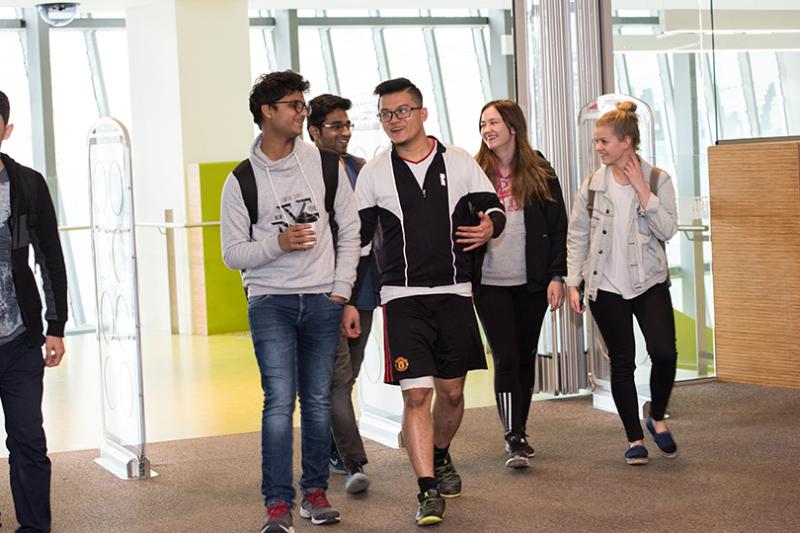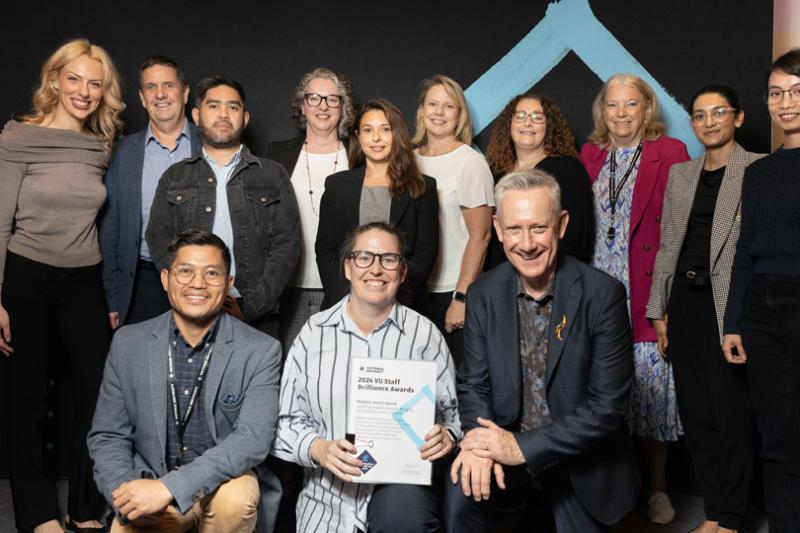Overcoming the silencing effect of racism

Victoria University (VU) launched, Understanding reporting barriers and support needs for those experiencing racism in Victoria, a new report about the damaging effects of racism, why those impacted often stay silent, and ways to improve anti-racism support across Victoria.
Led by VU’s Associate Professor Mario Peucker, in partnership with the Ethnic Communities’ Council of Victoria (ECCV) and the Islamic Council of Victoria (ICV), funded by Victorian Health Promotion Foundation (VicHealth), the report was launched today at Fitzroy Town Hall.
Key findings include:
76% of survey respondents (or someone in their care) experienced racism in Australia; two-thirds of them have experienced racism in the past 12 months, most commonly in employment (57%), shopping centres/shops (50%), on public transport (38%) and other public places (37%) or online (35%).
- Less than 16% have reported an incident of racism to an organisation or community group. Those who have done so reported predominantly within the organisation where the incident occurred or to Victoria Police.
- The reasons for not reporting are often interconnected and mutually reinforced. They include, among others, a sense of hopelessness (nothing would change; 91%), the view that reporting is too difficult (83%), concerns about not being taken seriously (83%), worries about negative consequences (76%) or not knowing where to report (75%). Negative reporting experiences in the past also discourage from reporting in the future.
- Less than 30% thought there were enough adequate reporting options in Victoria. While a majority knew how to generally report to Victoria Police, only few people knew how to access other reporting options and support services.
Based on a community survey of 703 Victorians from culturally and racially marginalised communities and complemented by 27 focus groups, the results offer unprecedented insights into community perspectives and experiences with racism, reporting barriers and motives, and the support needs after having faced racism.
For those who have faced racism personally and collectively, speaking about their experiences is often very painful, distressing and even re-traumatising, not least due to the lack of safe spaces for such conversations.
A woman of Somali background called for more community-led advocacy and assistance in navigating existing anti-racism support services: “As a community we need a platform where people can come to and report, and we can then pass this on to human rights commission. We often don’t talk about these things. People are scared. But we should say, ‘listen, you should not be scared, go to someone in the community who can help you’. They can then send the report to the commission.”
“Listening to and centering these community voices is crucial for any advancement in reducing racism,” Associate Professor Peucker said. Adding that racism can only be addressed by listening to the communities that are affected by systematic and everyday discrimination and vilification.
“Anti-racism must be guided by their voices. Our report captures the experiences of hundreds of people who continue to be negatively impacted by racism, while offering proactive ways to encourage people to speak out and ultimately improve anti-racism support,” he said.
ECCV Chairperson Mr Eddie Micallef believes diverse migrant and refuge communities hold the key to shaping more effective policies and strategies to end racism in Victoria.
“ECCV is proud to partner with Victoria University and the Islamic Council of Victoria on this new report centering the experiences and insights of people impacted by racism. By better understanding what our migrant and refugee communities need, we can empower them to call out racism, report it and take the steps to seek support," Mr Micallef said.
The report highlights tangible measures to better align reporting pathways and support services with community needs, including:
- Organising regular training and workshops in schools, employment and beyond on racism to strengthen racial literacy.
- Greater and ongoing community engagement to build awareness of legal anti-racism rights and existing reporting and support services in Victoria through, for example, community-led forums and online and offline campaigns.
- Increasing accountability for racist behaviour by strengthening legal protection and enforcement of existing legal frameworks.



